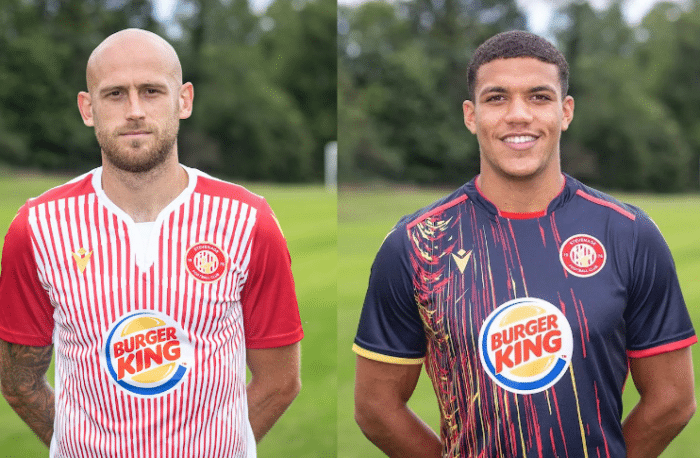Sports sponsorships have emerged to be a powerful form of marketing in recent times. In a bid to increase brand awareness, expand markets and also market new product launches, brands choose teams with the best ranks, popular players and hugely popular tournaments that have an extensive viewer-base.
This helps drive excitement amongst consumers with respect to the brand’s products and offerings. Sales also increase considerably, inviting more customers and facilitating high recall.
But in June 2019, many around the globe were left scratching their heads in confusion when fast food giant Burger King sponsored Stevenage FC, a League two battler.
Background of the Football team

American fast food giant Burger King sponsored English football team Stevenage FC, in exchange for room on their home and away tees.
This was unusual, as the team wasn’t really playing that well, and occupied the last rank in league Two, with most of their games not even being aired on television.
So, what prompted Burger King to team up with a team that didn’t even command a substantial fan-base?
The Marketing campaign

Though Team Stevenage FC wasn’t exactly in its best form at that time, the team, like most other professional clubs existed virtually through EA Sports video game FIFA.
This fact was fully leveraged by Burger King, having their logo displayed on FIFA, a game played by millions of die-hard fans around the globe.
And the fast food giant didn’t just stop here. It launched a social media challenge- which invited fans to play as the fourth division side on FIFA and share their best goals,
skills or moments from those games and win prizes.
CEO Alex Tunbridge said: “We are delighted to be working in partnership with Burger King on the Stevenage Challenge which is an innovative concept that aims to turn the club into the biggest online team through the power of video gaming and social media. We hope to see millions of people interacting with the club and showing their support both in person and online. You don’t have to be a big club to think big.”
With more than 25,000 goals shared online on the challenge, team Stevenage’s shirt sales catapulted, leading to a cult following in the gaming world. Burger King was able to achieve what it intended to with this genius marketing tactic, with its logo being seen by millions on a weekly basis.
A win-win situation for both the parties, with Burger King being awarded several awards for its sheer marketing genius and Stevenage being a popular team on FIFA even today!
















